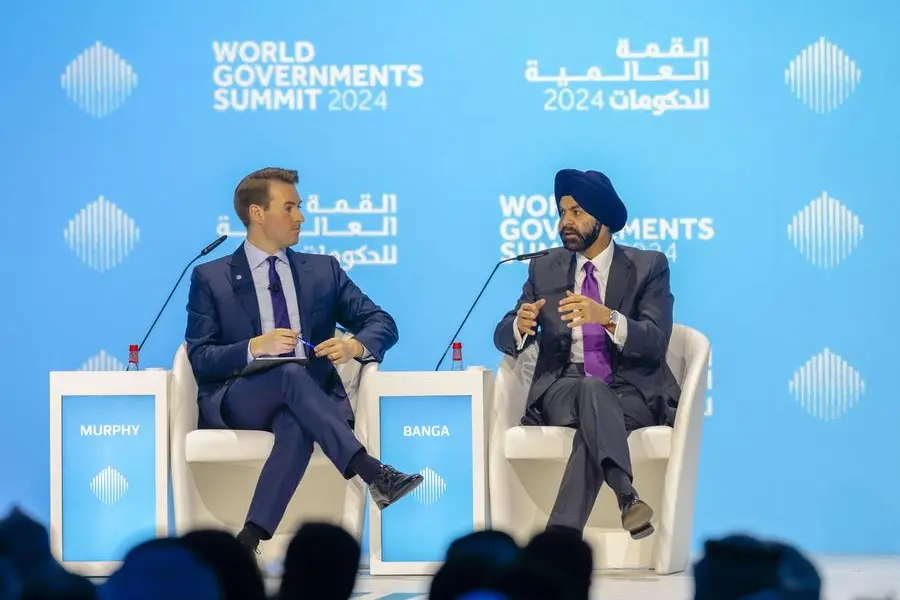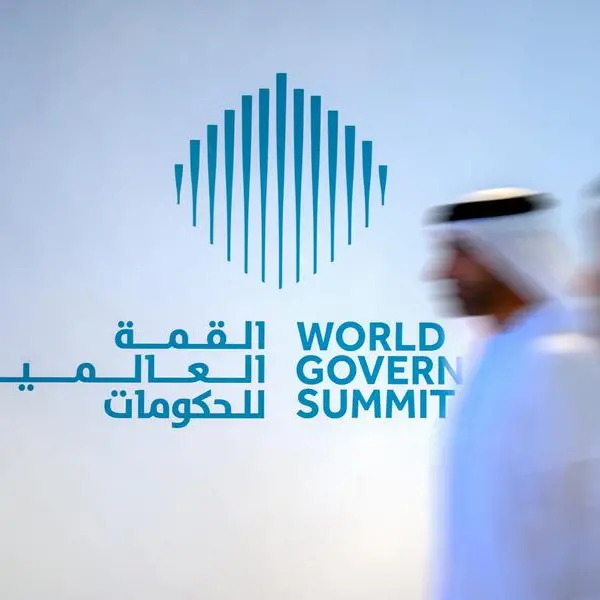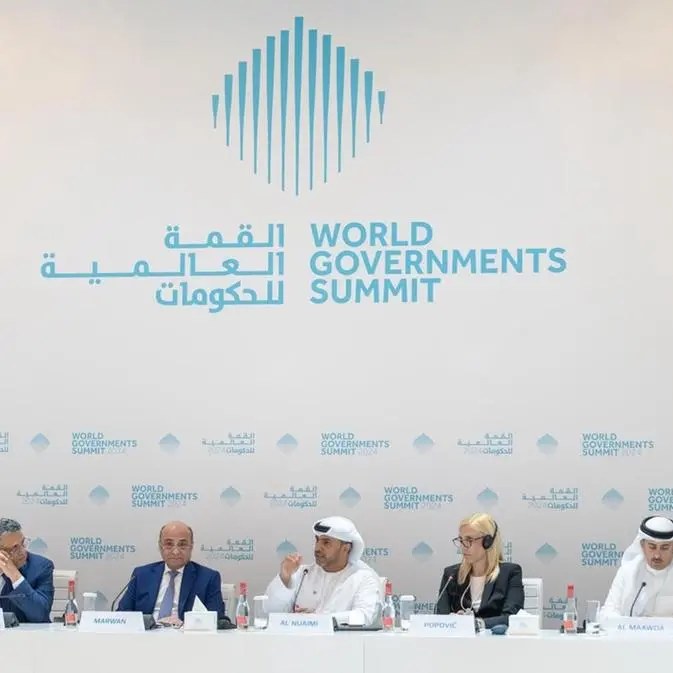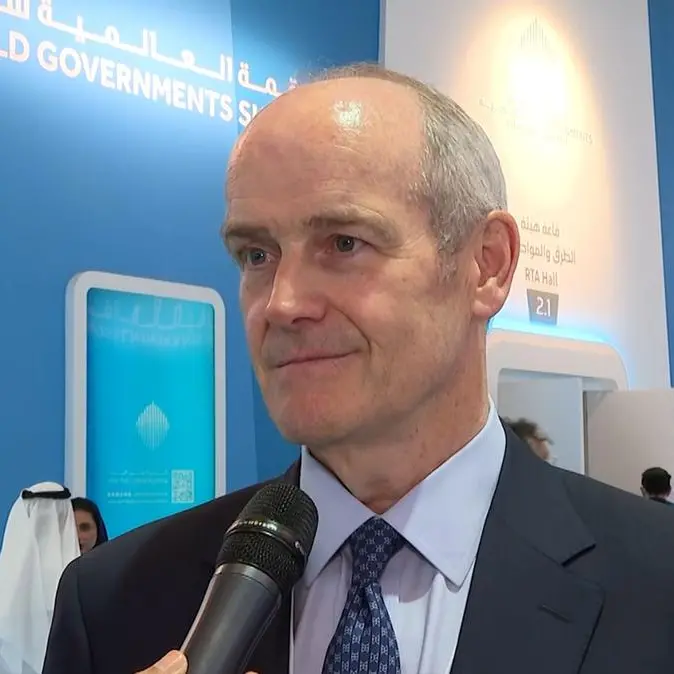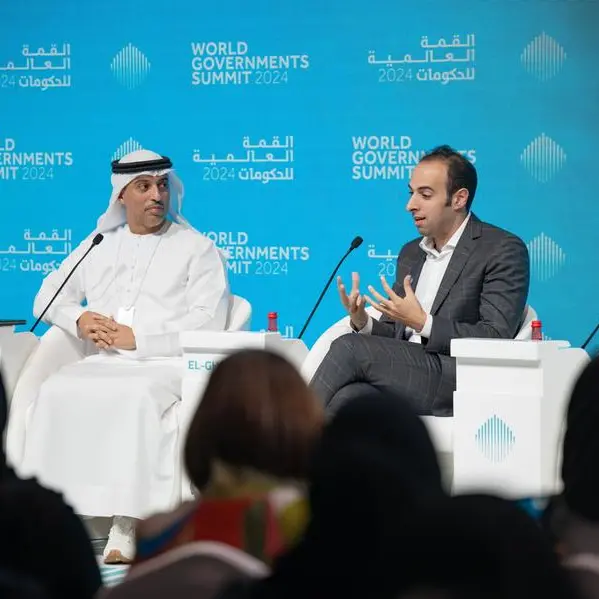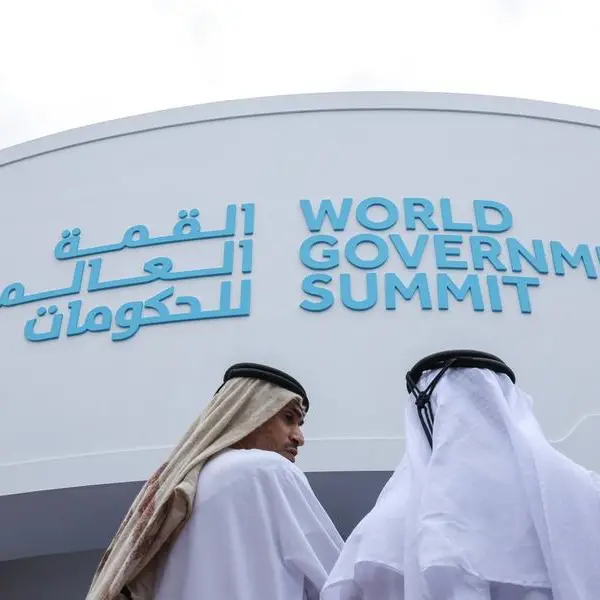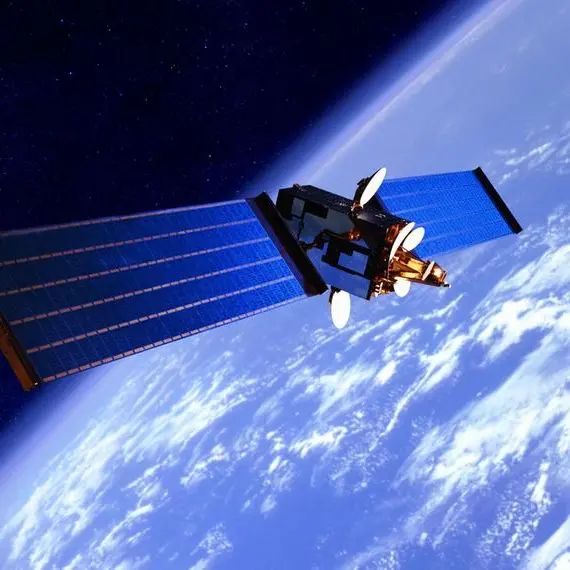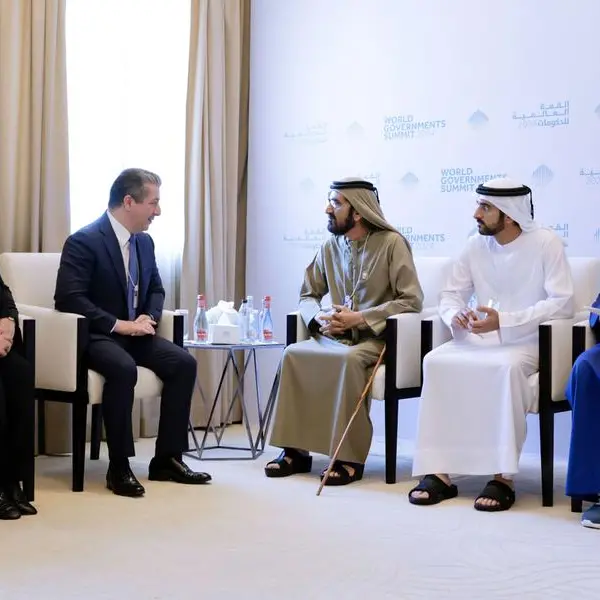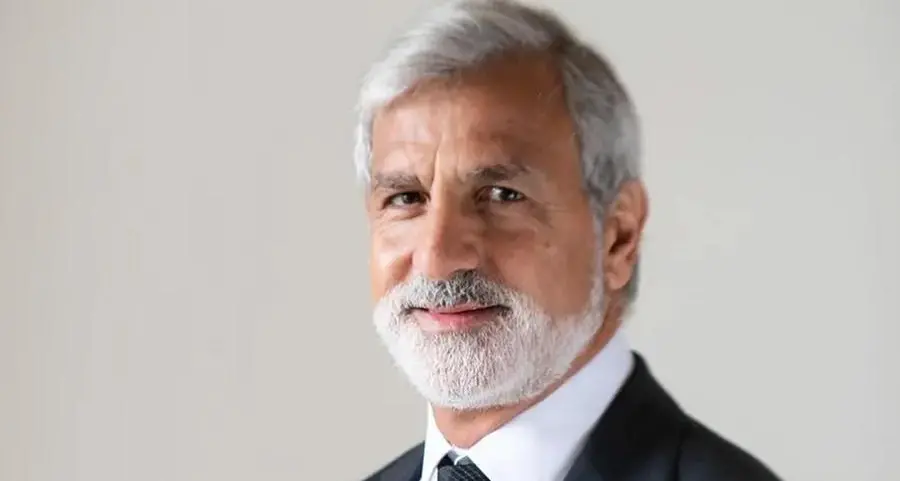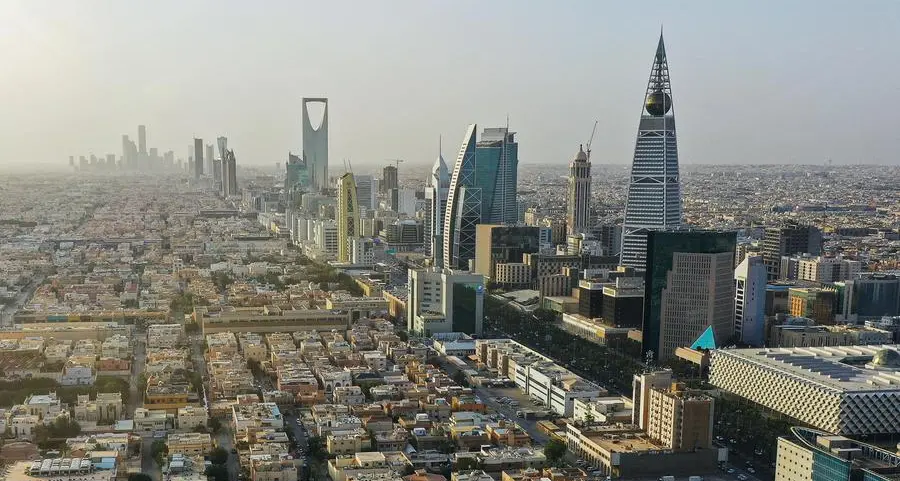PHOTO
DUBAI: In the presence of H.H. Sheikh Mohammed bin Hamad bin Mohammed Al Sharqi, Crown Prince of Fujairah; and H.H. Sheikh Maktoum bin Mohammed bin Rashid Al Maktoum, First Deputy Ruler of Dubai, Deputy Prime Minister and Minister of Finance, the opening day of the World Governments Summit (WGS) 2024 witnessed a thought-provoking session titled “Delivering Impactful Development Results – a Conversation with the World Bank President”, which highlighted how conflicts undermine the prospects of inclusive development worldwide.
Ajay Banga, President of the World Bank Group, stressed that the most pressing challenges facing inclusive development in the entire world lie in the form of the instability prevalent in several countries as a result of wars, noting that the Bank is working to ensure access to power for 130 million people in Africa.
Attending the session were Sheikh Nahyan bin Mubarak Al Nahyan, Minister of Tolerance and Coexistence; and Mohammad bin Abdullah Al Gergawi, Minister of Cabinet Affairs and Chairman of the World Governments Summit. The Summit will continue until 14th February.
During the session moderated by Dan Murphy from CNBC, Banga affirmed that growth and prosperity are closely linked to peace and stability. He noted that the Bank is cooperating with several countries around the world to support youth and women for a better future for humanity.
He identified several key concerns for the World Bank, noting that eradicating poverty, preserving the planet’s health, and addressing climate challenges are the most prominent issues on the Bank’s list of priorities. “The World Bank is working to reduce the loan negotiation period to a maximum of 12 months instead of 19 months, with the aim of accelerating development efforts in loan-requesting countries and helping them complete projects that serve their people,” he added.
The World Bank, he said, had adjusted its vision and strategy so that aid would be directed towards eradicating poverty and making the planet a better place to live, by supporting countries in confronting crises and pandemics. He also pointed out that 45 percent of the Bank’s annual financing has been allocated to support efforts to combat climate change impacts and challenges, with the aim of helping countries adapt to climate change and mitigate its adverse effects.
According to Banga, the World Bank's focus over the next two decades will be directed at providing support to primary education and agriculture, and the empowerment of women and youth to ensure they receive proper education and jobs, since they represent key pillars of their societies. Significant focus is also being placed on the health of the planet, he said.
He pointed out that the Bank is working to connect more than 130 million people in Africa to power grids, which is a basic right for every human being, noting that accomplishing the project requires the cooperation of governments in recipient countries. As part of its future strategies, the Bank is seeking to provide alternative crops, and help developing countries adapt to climate change, in addition to focusing on forest projects to drive dedicated investments.
“The World Bank is directing funding to priority projects – most notably protecting people from poverty, disease and various crises, after ensuring that the countries requesting such funding have taken the necessary measures to achieve these goals,” he added.
“Over the coming years, the Bank will target the private sector, along with countries and governments, in order to help drive development,” Banga concluded, noting that the World Bank Group, which was established 80 years ago, will also focus on developing expertise and supporting all sectors that target the well-being, security and safety of humanity.
